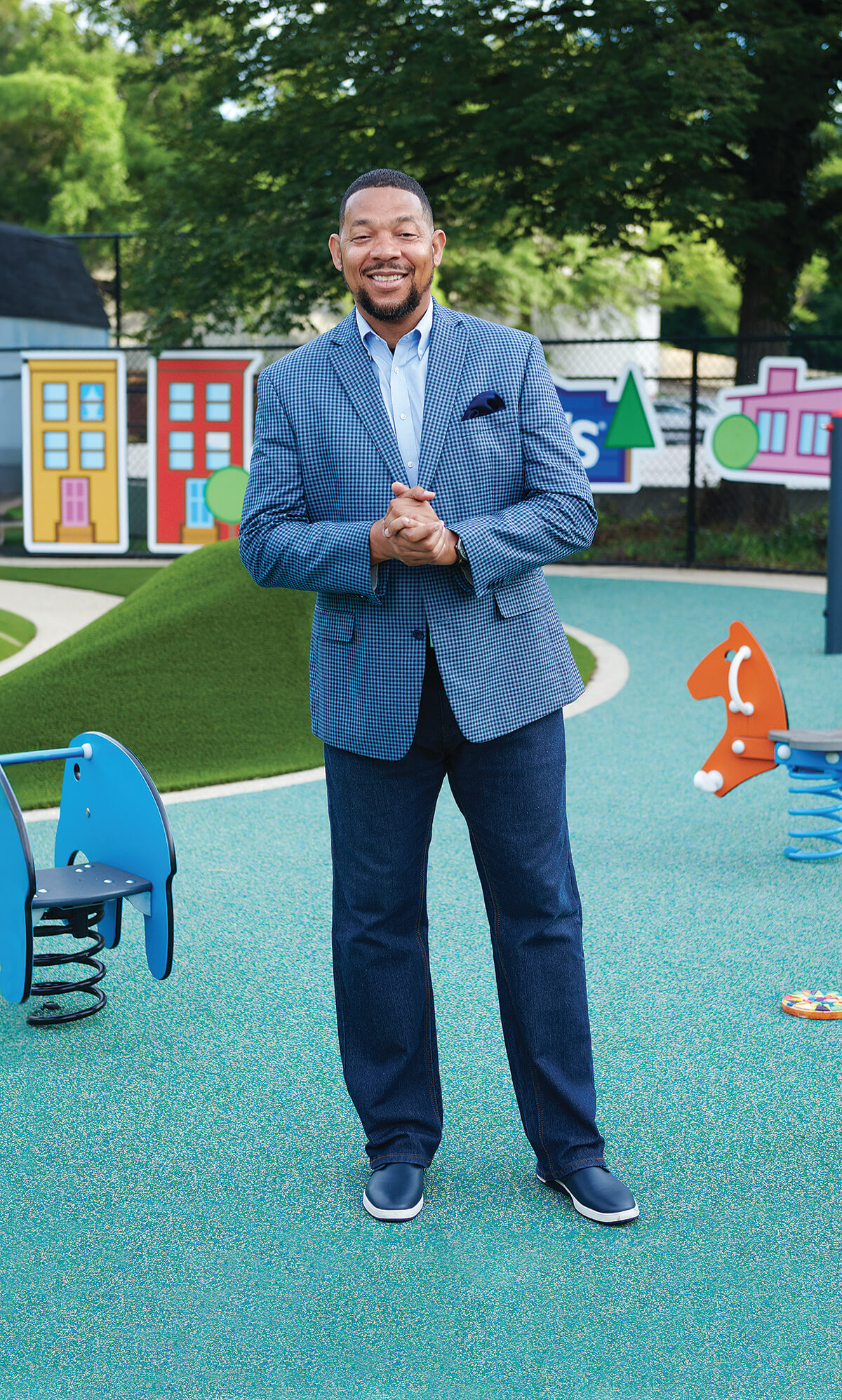GameChangers
Franklyn Baker Takes a Direct Approach to Serving Baltimore Communities
The president and CEO of United Way of Central Maryland has doubled down on homelessness prevention, educational equity initiatives, and diversifying staff.

Since Franklyn Baker became president and CEO of United Way of Central Maryland (UW) in 2016, the pandemic and inflation have only increased community need for life’s basics: housing, food, decent schools, and fair wage jobs.
Thus, Baker has doubled down on things like homelessness prevention and educational equity initiatives. UW also added two new family centers, in Poppleton and Columbia, building on its success with its first site in Brooklyn/Curtis Bay. Baker explains that the centers “provide affordable and accessible childcare—something that is a national problem. These centers offer enriching early childhood education and an array of supportive services for children and their families in high-need communities.”
Baker is photographed, above, at the new Poppleton playground. Designed to be age appropriate for pre-kindergarten to kindergarten users, the center playgrounds aren’t just fun; they are interactive outdoor classrooms and safe places where kids can do what they do best—play.
Since joining UW, Baker has overseen a shift at the organization to more of this type of direct service, starting with the decision to move its HQ from downtown to Montgomery Park. Baker says he is focused on amplifying the voices of community leaders and residents.
He’s also ensuring UW is as diverse as its constituents. He notes that for the last two years, UW has had a majority BIPOC staff, the board is now 48 percent BIPOC (up from 19 percent in 2016), and UW has increased funding to BIPOC-led organizations.
“I’m most proud of increasing the diversity of our staff and board and ensuring equitable investment and distribution of United Way funding in services, support, and resources,” says Baker. “Our approach respects and values people from all walks of life and fuels our vision of a community where one’s background doesn’t predict their future.”